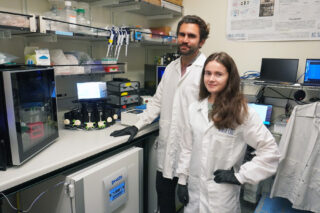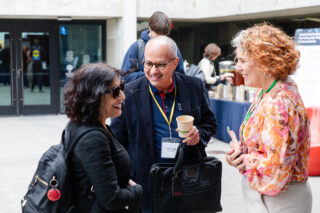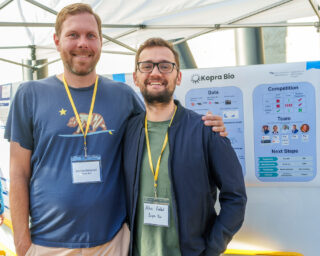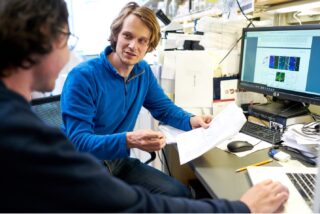Ciznor, Targeting ALS and FTD with Gene Therapy, Wins QB3 Defeating Dementia Award
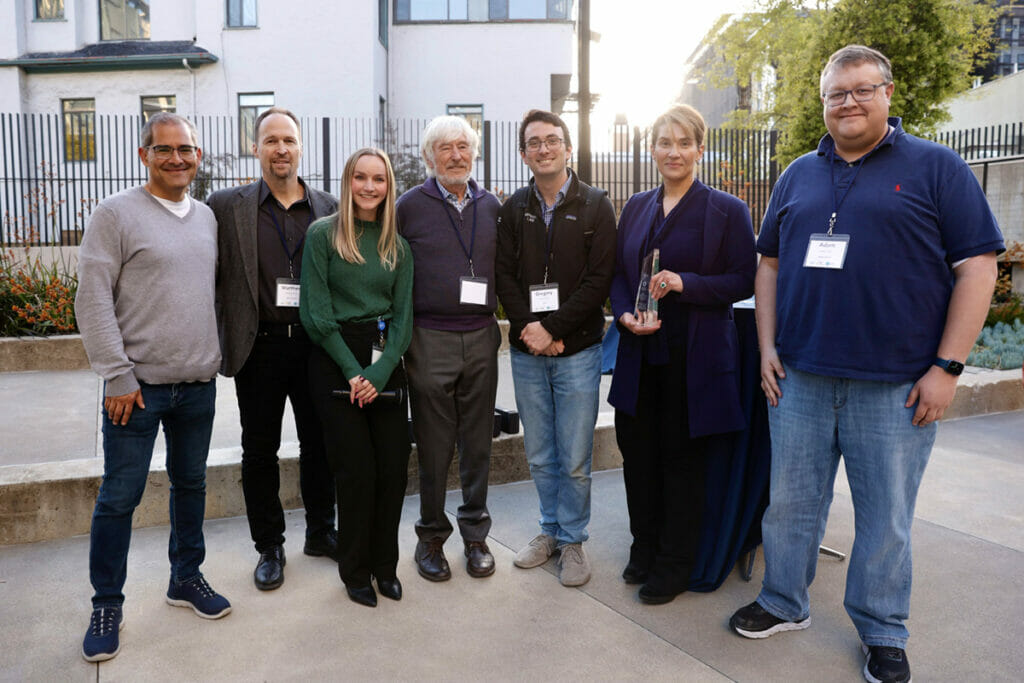
Congratulations to Ciznor, an emerging gene therapy company, on winning the QB3 Defeating Dementia Award yesterday at the Innovation Showcase segment of the Defeating Dementia Symposium!
The award gives Ciznor a boost and valuable exposure as it moves its gene therapy and delivery technology forward to the market and ultimately to patients. The award entails highly sought-after acceptance into Bakar Labs and access to all resources and programming; support from QB3 including early-stage and executive mentoring; and $25,000 in legal credit from Wilson Sonsini, a Bakar Labs affiliate.
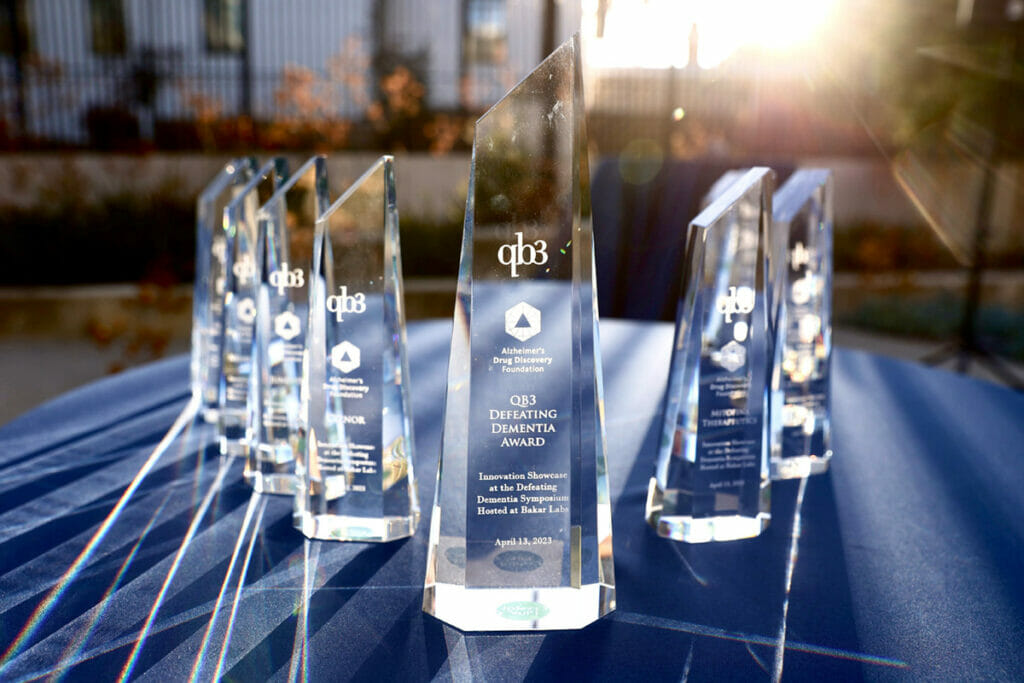
Ciznor, co-founded by UCSF professor Claire Clelland, MD, PhD, is developing novel gene therapies (and the means to deliver them precisely) for neurodegenerative diseases that originate from single genetic defects. Their first target is a gene known to be the leading cause of both amyotrophic lateral sclerosis and frontotemporal dementia.
“The session provided a great platform to present our company and technology to venture and potential industry partners, said Tandis Vazin, PhD, corporate advisor and incoming Ciznor CEO, who presented on behalf of the company. “This award will be instrumental to our new company as it will help us with our initial legal needs and intellectual property strategy.”
“We’re humbled to have been hosted by Bakar Labs,” said Meriel Owen, PhD, associate director of search and evaluation at the Alzheimer’s Drug Discovery Foundation. “We had an amazing event today that featured the biology of aging and Alzheimer’s disease, therapeutic approaches and biomarker development. We saw some sessions in the morning that featured really innovative basic science, and twenty companies presenting in the afternoon. It was an incredible showcase of innovation in the space and what’s to come for new treatments in dementia.”

More than 200 people registered for the invitation-only symposium, a two-part event organized by QB3 and the Alzheimer’s Drug Discovery Foundation. The morning was filled with cutting-edge basic science talks, while the afternoon featured the Innovation Showcase, a venue for early-stage companies. Ten ADDF portfolio companies presented, followed by 11 contenders for the QB3 Defeating Dementia Award.
“The standards were really high,” said Regis Kelly, PhD, former director of QB3, director of public outreach for Bakar Labs, and the central visionary, organizer, and emcee for the symposium. “What I found most impressive was the audience stayed engaged till the end of the day. When I stand up in the front and look around, I could see people were listening. They cared about what was happening. When you can keep a live audience interested these days, that’s something.”
More than 40 companies applied to present, from which a QB3/ADDF judging panel selected 10 finalists:
- Aptah Biosciences focuses on novel RNA therapies initially targeting cancer and neurodegenerative diseases.
- Ciznor: Combines gene editing and brain delivery technologies to treat neurodegenerative diseases through patient-specific approaches.
- CyteGen: An avant-garde precision genomic medicine company making a novel, first in class, Neural Organoid Platform™ that mimics the human central nervous system.
- Deciduous Therapeutics: Aims to positively impact human health span through the development of novel medicines that activate the endogenous immune mechanism responsible for the elimination of senescent cells.
- Junevity: Discovers genes that rejuvenate cells to develop gene therapies for macular degeneration and Alzheimer’s disease to revolutionize medicine.
- MirroRx: Uses IR light to differentiate unique features of specific brain diseases associated with dementia, such as Huntington disease (HD), Lewy body disease (LBD), and Alzheimer’s disease.
- Mitofina Therapeutics: Developing a peptide therapeutic to restore normal mitochondrial dynamics and treat a range of neurodegenerative diseases including ALS, HTT, PD and AD.
- NeuroAge: Aims to treat Alzheimer’s and rejuvenate the brain by developing drugs targeting aging, using multi-omics aging clocks in human postmortem brain cohorts.
- Neurxstem: An avant-garde precision genomic medicine company making a novel, first in class, Neural Organoid Platform™ that mimics the human central nervous system.
- Sinaptica Therapeutics: A clinical-stage company that has developed a personalized closed-loop neuromodulation therapy for Alzheimer’s disease.
One of Bakar Labs’ advantages as a university-based incubator is this close connection between basic research and the earliest stages of commercialization. Events like this symposium and showcase are a terrific way to lean on this advantage to catalyze connections. Stay tuned for our next ambitious meeting!




